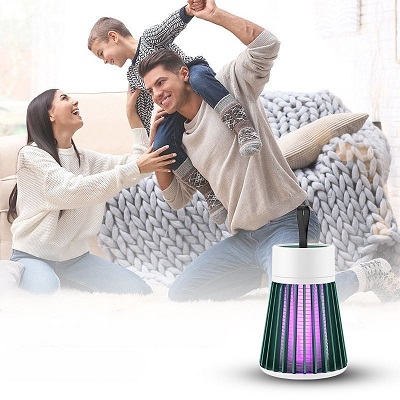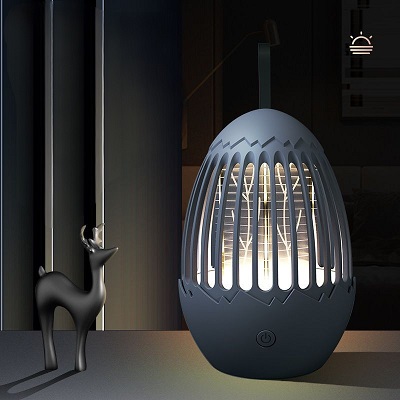Mosquitoes are pesky insects that can cause discomfort and pose health risks due to their potential to transmit diseases. As a result, various mosquito control methods have been developed, including mosquito lights and mosquito sprays. Both methods aim to reduce mosquito populations and protect individuals from mosquito bites.
Let’s compare the effectiveness of mosquito lights and mosquito sprays to understand which option may be more suitable for mosquito control.

Concepts
In this part, we will introduce the concepts of mosquito lights and mosquito sprays.
Mosquito Lights
Mosquito lights, also known as mosquito traps or mosquito lamps, are electronic devices designed to attract, capture, and eliminate mosquitoes and other flying insects. They typically use UV light, heat, and other attractants to lure mosquitoes towards the device.
Once near the mosquito light, mosquitoes may be trapped on adhesive sticky pads, electrocuted by an electric grid, or captured using a vacuum mechanism.
Mosquito Sprays
Mosquito sprays, also known as mosquito repellents or insecticides, come in various forms such as aerosol sprays, lotions, creams, and roll-ons. They contain chemical compounds like DEET, picaridin, or natural plant-based oils, which act as repellents to keep mosquitoes away from the treated area.
When applied to the skin or clothing, mosquito sprays create a barrier that makes individuals less attractive to mosquitoes.
Comparison of Effectiveness
After understanding the concepts of mosquito lights and mosquito sprays, let’s compare their effectiveness.
Mosquito Populations
Mosquito lights can be effective in reducing mosquito populations in the area where they are placed, especially when used in outdoor settings. They can capture and eliminate a significant number of mosquitoes over time. Mosquito sprays, on the other hand, offer more immediate relief by creating a personal protective barrier against mosquito bites.
Indoor vs. Outdoor Use
Mosquito lights are versatile and can be used both indoors and outdoors, providing effective mosquito control in various settings. Mosquito sprays are more suitable for personal use when outdoors or in specific areas where mosquito activity is high.
Chemical-Free vs. Chemical-Based
Mosquito lights offer a chemical-free and eco-friendly approach to mosquito control, making them a safer option for families with young children and pets. Mosquito sprays, while effective, rely on chemical repellents, which may raise health concerns and are not recommended for young children or sensitive individuals.
Coverage Area
The effectiveness of mosquito lights depends on their design and attraction range. Larger outdoor mosquito lights can cover more extensive areas, while smaller indoor models are ideal for confined spaces.
Mosquito sprays provide personal protection in a limited area around the individual using the product.
Long-Term vs. Short-Term Relief
Mosquito lights provide continuous mosquito control as long as they are in operation, making them a long-term solution. Mosquito sprays offer short-term relief and need to be reapplied regularly for sustained protection.

Conclusion
Both mosquito lights and mosquito sprays offer viable solutions for mosquito control, but their effectiveness and applications differ. Mosquito lights are suitable for reducing mosquito populations in larger areas and provide a chemical-free approach to mosquito control.
On the other hand, mosquito sprays offer personal protection against mosquito bites and are convenient for immediate relief in specific situations. The choice between the two methods ultimately depends on individual preferences, the scale of mosquito control needed, and any potential concerns regarding chemical exposure. Combining these approaches may provide the most comprehensive protection against mosquitoes, ensuring a more enjoyable and mosquito-free environment.
 Cecil
Cecil